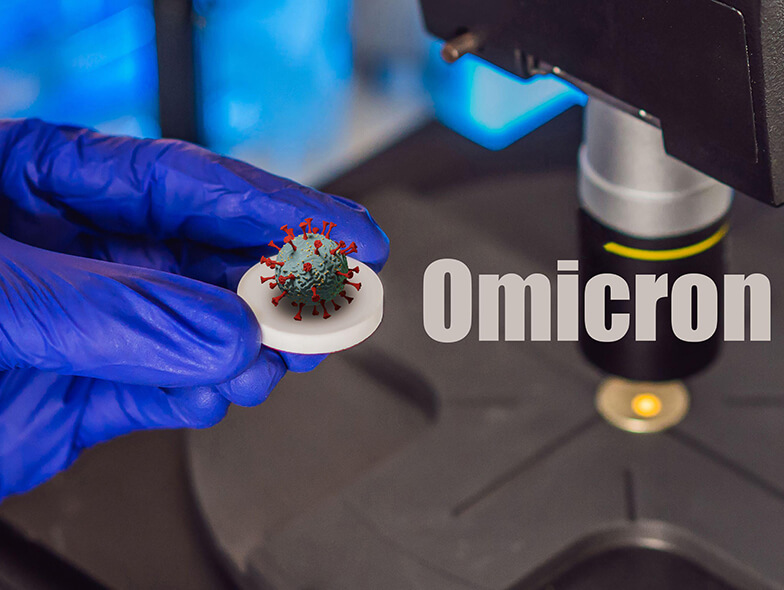Pharma companies research whether vaccines need upgrade to fight Omicron variant

It could take pharmaceutical companies months to tweak their COVID-19 vaccines to provide sufficient protection against the Omicron variant of the coronavirus if it poses a risk of serious illness.
That is the message that Moderna chief executive Stéphane Bancel has conveyed as companies scramble to compile and analyse data on how existing vaccines are performing against Omicron.
In an interview with the Financial Times, Bancel predicted that existing COVID-19 vaccines will be much less effective at tackling the Omicron variant than earlier strains of coronavirus and warned it will take months before companies can manufacture new variant-specific jabs at scale.
He explained that with 32 of the 50 Omicron mutations on the spike protein, which the virus uses to infect human cells, as well as the rapid spread of the variant in South Africa, the current crop of vaccines may need to be modified next year.
“There is no world, I think, where [the effectiveness] is at the same level … we had with Delta,” he told the British newspaper.
However, other voices within the industry have struck a slightly more optimistic tone.
In a statement, Oxford University, which developed the AstraZeneca vaccine, said it would carefully evaluate the implications of the emergence of Omicron for vaccine immunity.
“Despite the appearance of new variants over the past year, vaccines have continued to provide very high levels of protection against severe disease and there is no evidence so far that Omicron is any different,” it said. “However, we have the necessary tools and processes in place for rapid development of an updated COVID-19 vaccine if it should be necessary.”
Talking to Reuters, BioNTech CEO and co-founder Ugur Sahin said Comirnaty, the COVID-19 vaccine the biotech developed with Pfizer, would likely offer strong protection against any severe disease from Omicron.
He said lab tests had already started to analyse the blood of people who had two or three doses of Comirnaty to ascertain whether antibodies found in that blood inactivate Omicron.
“We think it's likely that people will have substantial protection against severe disease caused by Omicron,” he said, specifying severe disease as requiring hospital admission or intensive care.
He added he expects the lab tests to show some loss of vaccine protection against mild and moderate disease due to Omicron, but the extent of that loss was still hard to predict.
While BioNTech is working on an upgraded version of its vaccine, of which more than 2 billion doses have been delivered, it remains unclear whether that is needed, Sahin said.
Merck & Co. said its antiviral molnupiravir is likely to be active against Omicron based on the treatment’s mechanism of action and currently available genomic information.
The company said it has yet to do specific research studying molnupiravir’s effect against Omicron but added that it had previously found that the drug works for the Gamma, Delta, and Mu variants.
On November 30, Merck said the US Food and Drug Administration’s (FDA) Antimicrobial Drugs Advisory Committee (AMDAC) voted 13-10 that the known and potential benefits of molnupiravir outweigh its known and potential risks for the treatment of mild to moderate COVID-19 in high-risk adult patients.
While the FDA is not bound by the committee’s guidance, it does take its advice into consideration.
Related News
-
News Pharmapack Awards 2024 Patient-Centric Design Award Winner – Dr Ferrer BioPharma
The 2024 Pharmapack Awards celebrated the best in innovation and design for the pharmaceutical packaging and drug delivery industry on January 24, 2024. -
News Women in Pharma: Minding the Gap at Pharmapack 2024
2024 marks the first year Pharmapack will host a Diversity track dedicated to bridging the gap within the pharmaceutical packaging and drug delivery sector. The track includes a panel discussion on 'Enabling Diversity in the Workplace,' focused... -
News Pharmapack Awards 2024 - Celebrating Packaging and Drug Delivery Innovation
The 2024 Pharmapack Innovation Awards ceremony celebrated the best in pharmaceutical packaging and drug delivery innovation at all levels. The awards were held on January 24, 2024 at the Paris Expo Porte de Versailles. -
News 2024 Pharma Industry Trends Outlook: Collaboration, Market Maturity, and Digital Futures
The annual CPHI Online 2024 Pharma Trends Outlook, in partnership with Arvato Systems, identifies 12 key industry trends shaping the life sciences industry in the coming year. -
News New Novo Nordisk AI hub for drug discovery to open in London, UK
Danish pharmaceutical giant Novo Nordisk will be opening an AI-based research facility in the heart of London to advance drug discovery operations. -
News BioNTech to begin mRNA vaccine manufacturing in Rwanda by 2025
German biotechnology company BioNTech has stated their intentions to begin production at their mRNA vaccine factory in Rwanda by 2025, which will mark the first foreign mRNA vaccine manufacturing site on the continent of Africa. -
News Women in Pharma: Looking back on 2023 and moving forward to 2024
In this monthly series, we interview women from across the pharmaceutical industry and supply chain to discuss the importance of gender diversity in healthcare, the workplace, and beyond. -
News CPHI Barcelona 2023: Partnering for Success – Managing Outsourcing Relationships to Optimise Manufacturing Operations
During CPHI Barcelona 2023, insightful content sessions offered attendees the chance to explore trending topics with expert speakers and panellists. Here, we summarise what the pharma industry and supply chain are talking about the most.
Position your company at the heart of the global Pharma industry with a CPHI Online membership
-
Your products and solutions visible to thousands of visitors within the largest Pharma marketplace
-
Generate high-quality, engaged leads for your business, all year round
-
Promote your business as the industry’s thought-leader by hosting your reports, brochures and videos within your profile
-
Your company’s profile boosted at all participating CPHI events
-
An easy-to-use platform with a detailed dashboard showing your leads and performance







